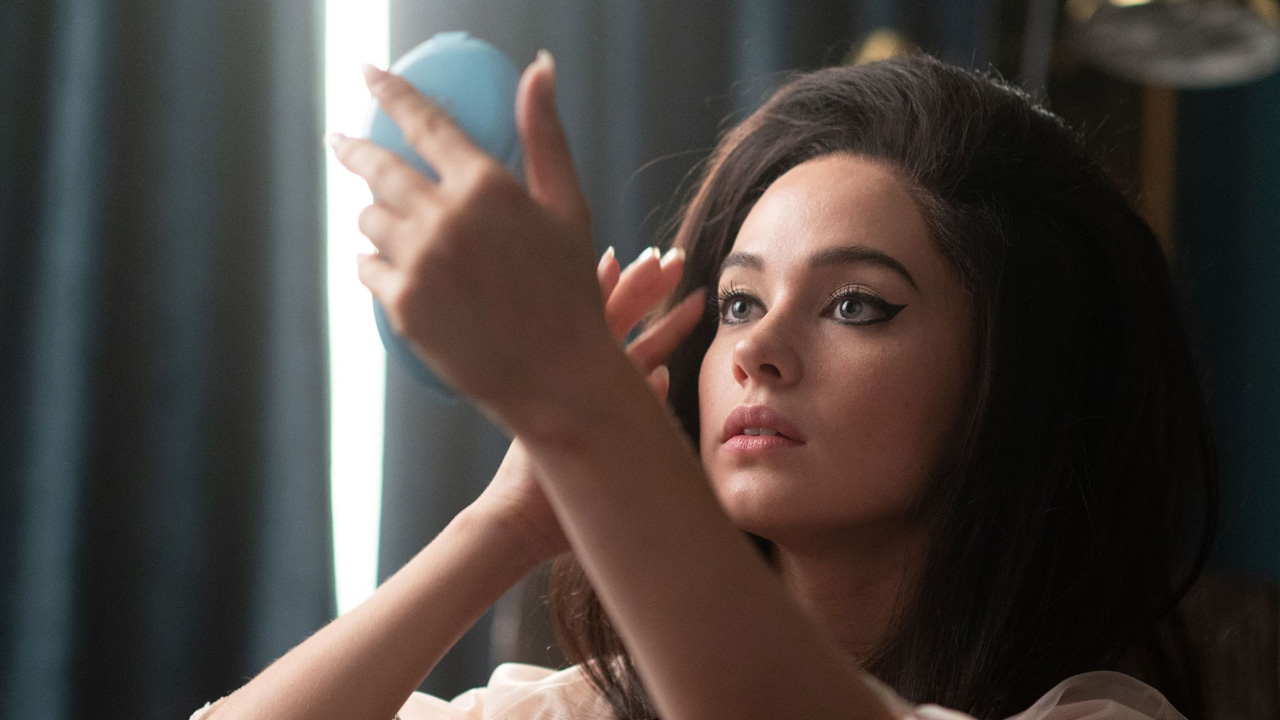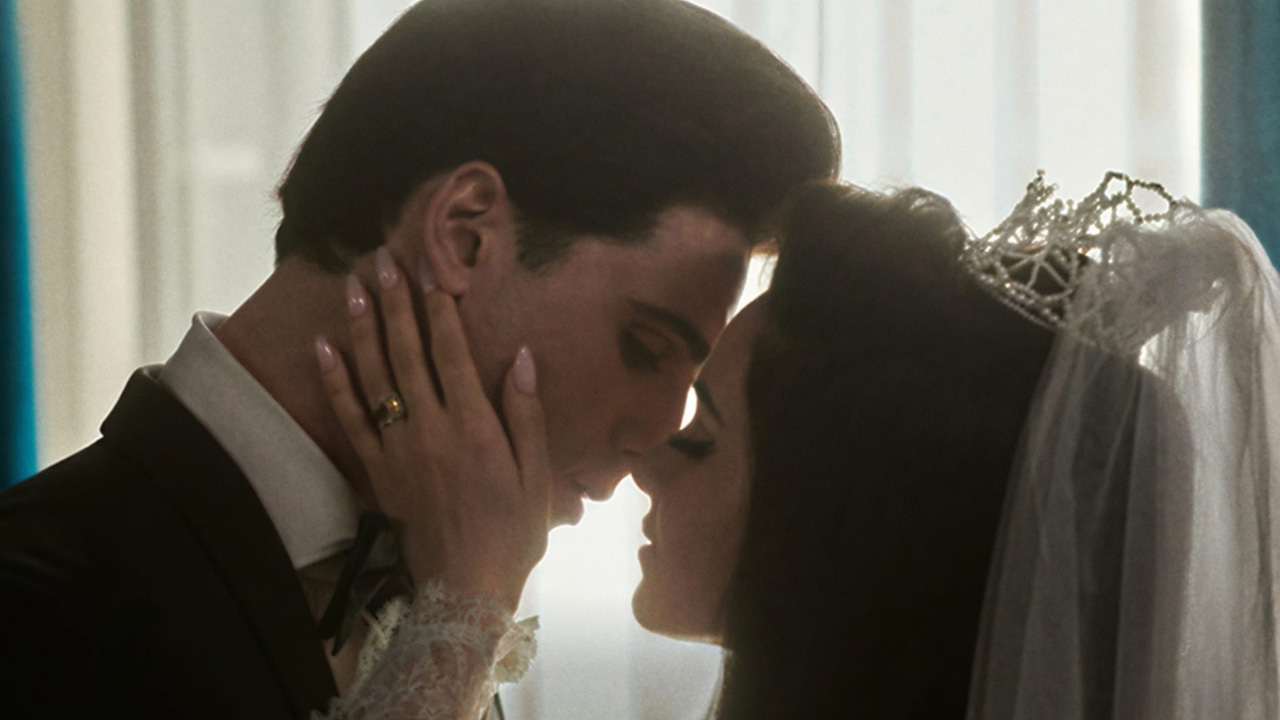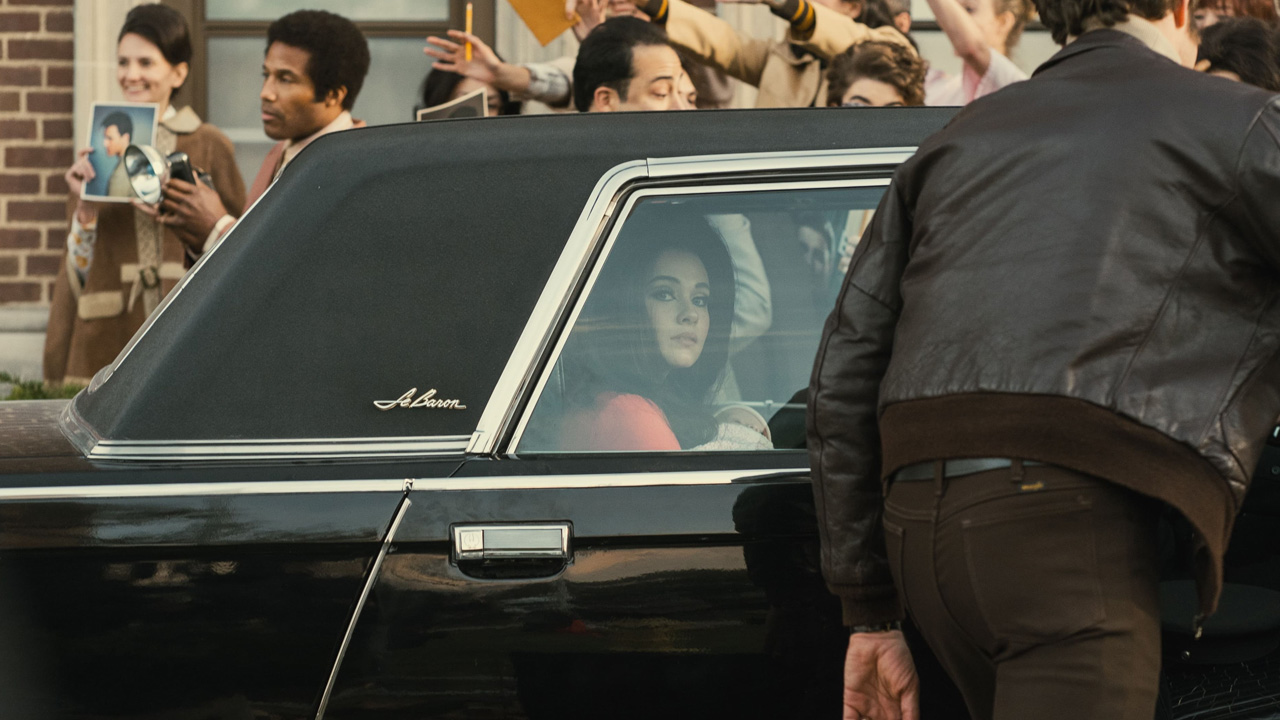Priscilla is Sofia Coppola’s finest work in over fifteen years

Reporting from the Venice Film Festival, Rory Doherty raved about Sofia Coppola’s intimate, revealing, and devastating film Priscilla, based on Priscilla Beaulieu’s own memoir detailing her life with Elvis.
Priscilla Beaulieu is fourteen when one of Elvis Presley’s US army friends approaches her in a diner to invite her to one of his weekend soirées. It’s the first thing that happens in Priscilla: the face of a young girl nervously greeting an invitation to meet the most intimidatingly cool man on the planet. When she defers accepting by saying she needs the permission of her parents (specifically, her military captain father), she doesn’t know that her life will be entwined with the superstar’s for the remaining eighteen years of his life.
Priscilla doesn’t just try to account for the vast amount that Priscilla didn’t know when Elvis took control of her life, choosing instead to trace her journey from ignorance into a complicated and uncommon agency. With her finest work in over fifteen years, Sofia Coppola sensitively reapproaches girlhood without sacrificing the emotional rawness behind a tremendously famous love story. Priscilla is intimate, revealing, and devastates with the lightest touch.
Last year, the colossal success of Baz Luhrmann’s music history rollercoaster ride Elvis dazzled both new and old fans of “the king of rock’n’roll”, but throughout the Tom Hanks meme-ing and Austin Butler praise, many took issue with the Hall of Fame-style veneration Presley received. In reprinting the legend of Elvis, the film glossed over most of the details of his relationship with Priscilla, his bizarre behaviour throughout their courtship (not to mention his repeated infidelities), and their troubling ten-year age gap.
When Coppola announced she was adapting Priscilla’s 1985 memoir Elvis and Me, it seemed to many like the troubling and problematic aspects of the couple’s relationship would finally be laid bare on-screen. But to call Priscilla a retort to someone else’s film does a disservice not just to a female-driven drama that shares little stylistic or narrative tissue with Luhrmann’s, but also ignores how perfectly the film fits into Coppola’s oeuvre. Here we see a young woman become disillusioned with the way young women get treated, no matter how close to celebrity they get. Men with influence—led by the person she loves the most—insist on keeping her in a fixed state for their own benefit; as time goes by, Elvis keeps the dizzying love he first swept her up with at arm’s length, making her lavish home intensely isolating. Graceland may look like the same compound in both Priscilla and Elvis, but these are sites of vastly contrasting emotion.

Following the key stages of Elvis’ return from military service, his creative stagnation, eventual career revival and deterioration in Vegas, Coppola confines us to corners of rooms, isolated bedrooms, and places where attention is pushed solely on the King; we are as much on the periphery of stardom as Priscilla.
Elvis didn’t have sex with Priscilla for the first seven years of their relationship, insisting she stayed a virgin until he had deemed she was ready. As he repels her natural and deeply felt desires, as she continuously forgives his outbursts and demeaning behaviour, Priscilla’s pain becomes more keenly felt; only the camera, with its unfussy, observational framing and frequent extreme close-ups offers unconditional empathy. Twice, Priscilla watches her step-father discuss her future with Elvis, both in-person and over the phone, and cinematographer Philippe Le Sourd’s camera looks into the room through a partially closed door in the exact same way; this is Priscilla’s point of view when her future is being decided for her.
Cailee Spaeny, whose only lead roles prior to Priscilla include The Craft: Legacy, brings a performance so astonishing, it feels like decades of repression and confusion have finally broken a dam. Jacob Elordi, with his towering frame and broody, chiselled expressions, proves a stellar pick for Elvis, but his presence as the singer also feels indebted to Spaeny’s command of her role—after all, wasn’t Elvis defined by the eyes of those who looked adoringly at him? Despite seeing the singer nearly exclusively in his downtime, performance and veneration surround him at all times. How aware is Elvis of the troubling extent of what he asks of Priscilla, or does his situation make it impossible for anyone—including the woman he loves—to contradict his behaviour?

For budget reasons and due to Elvis’ estate disavowing Coppola’s depiction of him (Priscilla herself has given the film her blessing, supporting it in person in Venice), Elvis’ library of music makes almost no appearance in the film. But this roadblock is actually an opportunity for Coppola; she and music supervisor Randall Poster have assembled a soundtrack of other artists that doesn’t just make for another deeply felt and eclectic soundtrack from the director. It feels like an active effort to extract Elvis’ domineering, iconic status from what needs to be an intimate look at those on the edge of his spotlight.
Coppola’s film makes it clear how deeply he loves Priscilla, but the conditions that his love came with appear to an outsider completely unfair. Coppola is not interested in moral judgement, but rather access to the turbulent interiority of someone whose perspective continued to be diminished after his death. If this is what the relationship looked like from the outside, what did it mean to live it? There’s no easy explanation, but there is a world of feeling Coppola deftly breaks open. We’ll never know what it was like for Priscilla Beaulieu to live that life with Elvis. But more than any artist before her, Sofia Coppola has given us a glimpse into it.
Originally published by Flicks on September 5, 2023



















